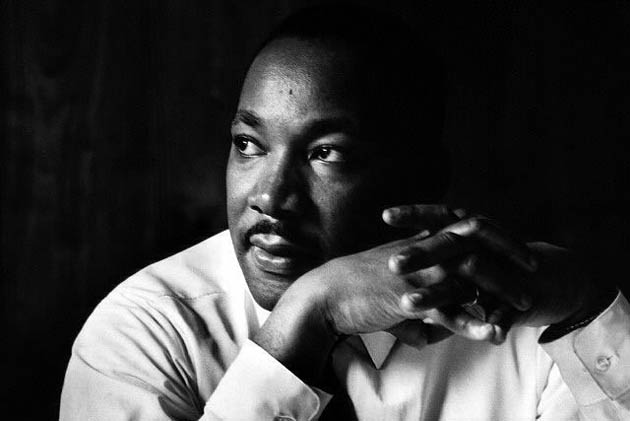A Call for Unity From New York City
In what promises to be a unique and memorable week for all Americans, the national holiday honoring the life of Dr. Martin Luther King Jr. on Monday, January 16th occurs in the same week as the inauguration of President-elect Donald Trump on January 20th.
Dr. King strove first and foremost to bring equality under the law to black Americans, but his vision encompassed all of humanity, and ultimately, all Americans recognized his legacy with the signing, by President Reagan in 1983, of a bill establishing the national holiday.
While it’s doubtful that any politician could inspire the kind of unity that Dr. King does today, in order to function, our democracy – its protections for dissent notwithstanding – also requires respect for the bonds that unite us.
In his farewell address last week, President Barack Obama addressed this point, saying, “Democracy does require a basic sense of solidarity. Despite our outward differences, we rise, or fall, as one.”
New York City, where I’m writing from, is in many ways the epicenter of the American dream, a place where prospective Americans have traditionally immigrated from all nations.
Though Donald Trump is a native son of this town, most New Yorkers – who tend to vote Democrat – did not support him for President, and the city has been scene to the longest running and most vocal protests against him prior to his assuming office.
Thus I thought New York City might be an interesting barometer of whether, as the inauguration draws near, blue state Americans are prepared to accept Trump’s election – and even feel hope our country can unite in finding solutions.
Speaking at random with about 50 New Yorkers in the city’s watering holes or enjoying a lunch break in unseasonably warm weather last week, several themes emerged.
First, most have hope.
“My knee-jerk reaction is we will take a bruising in the next four years, but I believe we will endure,” said Evan Markman, 45, a consultant.
Others stressed the importance of activism and participation in government.
“[The election of Trump] should push more young people to get active,” said Anna Tillman, 54, of Mill Basin, Brooklyn, who works in the hospitality industry.
A minority expressed willingness to reach across party lines and communicate with people on the other side of the political divide – even while holding fast to their convictions.
“I’m not close to anyone who is a Trump supporter, and that’s a problem,” said Michael Shorr, 54, a teacher. “It’s too easy to become tribal and forget that fundamentally, we are [all] human beings.”
“I think Dr. King would be turning in his grave to see Donald Trump elected,” said Elana Bell Bogdan, 27, a software developer who lives in Crown Heights, Brooklyn. “I see a lot of strength and resilience and beauty in marginalized communities trying to come together and organize around issues. But I realize a lot of what got Trump elected was people in echo chambers, so I think coming together [across political lines] is important.
She added, “We can take the legacy of nonviolence from MLK.”
Most agreed it is important to accept the election result.
“We have to watch [Trump] vigilantly but work together and move forward,” said Nahum Hawaz, 28, an entrepreneur from Harlem. “That’s how it works in a democracy. What’s the alternative? If you find a better system, let me know.”
Some, though not supporters, said it was important to give the incoming President a chance.
“He has said some horrible things [that] made me uncomfortable, not just for me as an African-American woman, but for others,” said Reinette Valere, 28, an executive assistant who lives in West Harlem. “But he may have said these things because he’s a businessman and business means winning.”
She added, “I’m not a Republican, but it is important to me to give Mr. Trump a chance. It seems like everyone is outraged, but he could turn out to be one of the best presidents. We don’t know.”
One man sounded a note of caution that it should not take tragedy to enable Americans to embrace the spirit of unity.
“An unintended consequence of September 11th is that New York City is still not as factionalized as it was before,” said midtown resident Sami Stiegmann, 77, a retired accountant and motivational speaker.
Recalling that New Yorkers united around former Mayor Rudy Giuliani after the attacks of September 11th, Steigmann added, “It is very important to unify our country and wish well to our country, and it shouldn’t take a tragedy for that to happen. United we stand, divided we fall.”
We have not realized Dr. King’s dream of becoming a colorblind society, but even today, we have come a long and blessed way since his time in that, at most preschools in New York City, you will see little black boys and little black girls holding hands with little white boys and little white girls.
But in addition to the remnants of racism in certain quarters, this country has added to its problems a rancorous division along political lines.
While our two-party system has never necessarily encouraged unity, and binary understanding of problems may be a function of that, the level of bitterness and dehumanization of those on the other side of the political divide, coming from right and left, threatens to tear at the fabric of what unites us, and prevent us from hearing each other, and working together.
In the spirit of Dr. King’s legacy, might we take a moment, if only to dream, that we can come together, hear all voices, and build bridges from the past into the future as one people, diverse and indivisible.




